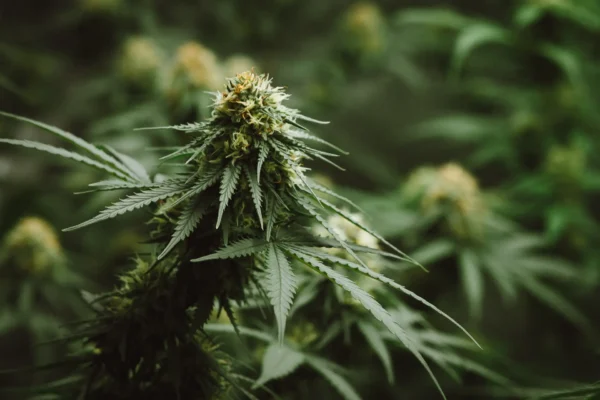Cannabinoids are natural compounds in the cannabis plant, each with unique effects and potential therapeutic uses. Among the most well-known are cannabidiol (CBD) and tetrahydrocannabinol (THC). While they share similarities and interact together, their effects on the body are different. Because of this, there are differences in how they may be used medically and legal statuses outside of medical cannabis products.
This blog explains the differences between CBD and THC, helping you understand their roles in medical cannabis and how they might fit into your treatment plan.
What are cannabinoids?
Cannabinoids are chemical compounds that work with the body’s endocannabinoid system (ECS). The ECS helps regulate key functions like mood, pain, appetite, and immunity.
There are three types of cannabinoids:
- Phytocannabinoids: Found in cannabis plants.
- Endocannabinoids: Produced naturally by your body.
- Synthetic cannabinoids: Created in labs for medical use.
Cannabinoids interact with receptors in the body, particularly in the brain and immune system 1. Cannabinoid receptors, called CB1 and CB2, influence various processes. CB1 receptors, found in the central nervous system, influence mood, memory, and motor coordination. While CB2 receptors, found mainly in the immune system, play a role in inflammation and pain modulation.
Cannabinoids also interact with other receptors, which may help regulate pain, mood, anxiety, and inflammation.
How many cannabinoids are there?
Cannabis contains over 140 cannabinoids, many of which are still being studied2. These lesser-studied cannabinoids are gaining attention for their possible effects. Some cannabinoids that may have medical effects include cannabigerol (CBG), cannabinol (CBN), cannabichromene (CBC), tetrahydrocannabivarin (THCV), and cannabinoid Acids.
Where do cannabinoids come from?
Cannabinoids come from the cannabis plant. The specific makeup of each plant can vary a lot. Different species, like Cannabis sativa and Cannabis indica, have different amounts of CBD and THC. Medical cannabis is looked at for its exact cannabinoid content, and other minor compounds (terpenes and flavonoids), not just the plant type. For more on this, check out our blog on the differences between indica and sativa.
What is CBD?
CBD may be prescribed for conditions like chronic pain, anxiety, and epilepsy when first-line medications have been ineffective. At Curaleaf Clinic, we prescribe pharmaceutical-grade CBD, which is different from the over-the-counter products you might find in shops which are manufactured under less stringent standards.
CBD doesn’t directly activate cannabinoid receptors. Instead, it changes the ECS in other ways and can affect other important signalling molecules, like those for dopamine and serotonin. In the UK, CBD-based medicines are approved for treating certain types of treatment-resistant epilepsy.
What is THC?
THC is a cannabinoid found naturally in the cannabis plant. When consumed in sufficient quantities, THC activates CB1 receptors to produce a “high” or euphoria. However, it is also known for its medical uses. At Curaleaf Clinic, we aim to help you feel better, not to make you feel high. Where THC is appropriate, we start patients on a low dose, which can be slowly increased over time to reduce the chance of side effects.
Our clinic set up the UK Medical Cannabis Registry, the only database of its kind for patients in Britain, which studies the results of cannabis treatments in the UK. THC is being researched for its potential use for conditions like chronic pain, nausea, and muscle stiffness when other treatments don’t work. It’s also part of licensed medicines like nabiximols (Sativex®), which uses both THC and CBD to help with spasticity associated with multiple sclerosis.
What is the Legal Status of CBD and THC?
In the UK, CBD is widely available, but THC is more tightly regulated making its possession, supply, or production illegal outside of specific medical contexts3. THC can only be prescribed as part of cannabis-based medicinal products (CBMPs) for certain medical conditions. Some CBD medicines like Epidyolex® are approved for specific conditions, but over-the-counter CBD products lack pharmaceutical-grade quality and are not meant for medical use.
What are the Medical and Therapeutic Uses of CBD and THC?
CBD and THC are prescribed for different conditions, and sometimes together. THC is often a component of prescriptions for pain and nausea, while CBD is commonly a component of therapies prescribed for anxiety, epilepsy, and insomnia. Evidence from the UK Medical Cannabis Registry highlights changes in quality of life, sleep, and pain management for patients prescribed CBMPs containing both CBD and THC. However, it’s important to remember that medical cannabis is not a panacea.
Emerging research suggests that combining THC, CBD, and other cannabis compounds may modify their respective effects. At Curaleaf Clinic, our clinicians tailor treatment plans to each patient’s condition and goals, which can be adjusted over time
What are the Potential Side Effects of CBD and THC?
Side effects can vary based on the dose, how the product is used, and how the person reacts to it. Side effects can range from mild to severe and include:
- Very common: Drowsiness, nausea, decreased appetite, fatigue, and diarrhoea.
- Common: Blurred vision, dry mouth, irritability, and sleep disturbances.
- Uncommon: Changes in heart rate, fainting, or abdominal pain.
In medical settings, starting with a low dose and slowly increasing helps to reduce the risk of adverse effects.
Conclusion
Understanding the differences between CBD and THC may help you feel more confident when looking into medical cannabis for your treatment plan. At Curaleaf Clinic, we’re here to support you in determining whether medical cannabis, which may contain CBD and/or THC, is right for you.
To find out if you are eligible for a medical cannabis consultation, fill out our free online eligibility form. By providing your medical records or giving our experienced patient support team permission to retrieve these on your behalf, you can understand whether an appointment with one of our experts is right for you.
Glossary
Cannabidiol (CBD): A cannabinoid found in cannabis. It interacts with the body’s endocannabinoid system and other signalling systems, such as dopamine and serotonin. CBD can be prescribed for chronic pain, anxiety, and epilepsy when first-line treatments have failed.
Cannabinoid: A chemical compound found in cannabis plants, produced naturally by the body, or created synthetically. Cannabinoids interact with the endocannabinoid system, which regulates functions like mood, pain, and immunity.
Cannabinoid Receptors: Primarily CB1 and CB2 receptors, these interact with cannabinoids to influence processes like mood, memory, pain, and inflammation.
Cannabis-Based Medicinal Products (CBMPs): Medications derived from cannabis, often containing cannabinoids like THC and CBD, are prescribed for specific conditions under strict regulation.
Endocannabinoid System (ECS): A biological system in the body consisting of cannabinoids, their receptors and other molecules that help regulate key functions like mood, pain, appetite, and immunity
Tetrahydrocannabinol (THC): A cannabinoid found in cannabis. In medical settings, it can pre prescribed for conditions like chronic pain, nausea, and spasticity when other treatments are ineffective.
Sources
1 journals.lww.com. (n.d.).July 2021 – Volume 162 – Issue : PAIN. [online] Available at: https://journals.lww.com/pain/Fulltext/2021/07001/Cannabinoids
2 Pressman, P., Hayes, A.W., Hoeng, J., Latino, D.A.R.S., Mazurov, A., Schlage, W.K. and Rana, A. (2024). Δ9-Tetrahydrocannabinol (THC): A Critical Overview of Recent Clinical Trials and Suggested Guidelines for Future Research. Journal of Clinical Medicine, [online] 13(6), p.1540. doi:https://doi.org/10.3390/jcm13061540. Available at: https://www.mdpi.com/2077-0383/13/6/1540</
3 https://www.met.police.uk/foi-ai/metropolitan-police/disclosure-2023/february-2023/cbd-products/
4 Ergisi, M., Erridge, S., Harris, M., Kawka, M., Nimalan, D., Salazar, O., Loupasaki, K., Ali, R., Holvey, C., Coomber, R., Platt, M., Rucker, J. and Sodergren, M.H. (2022). UK Medical Cannabis Registry: an analysis of clinical outcomes of medicinal cannabis therapy for generalized anxiety disorder. Expert Review of Clinical Pharmacology, [online] 15(4), pp.1–9. doi:https://doi.org/10.1080/17512433.2022.2020640. Available at: https://pubmed.ncbi.nlm.nih.gov/34937473/
Ergisi, M., Erridge, S., Harris, M., Kawka, M., Nimalan, D., Salazar, O., Loupasaki, K., Ali, R., Holvey, C., Coomber, R., Platt, M., Rucker, J. and Sodergren, M.H. (2022). UK Medical Cannabis Registry: an analysis of clinical outcomes of medicinal cannabis therapy for generalized anxiety disorder. Expert Review of Clinical Pharmacology, [online] 15(4), pp.1–9. doi:https://doi.org/10.1080/17512433.2022.2020640. Available at: https://pubmed.ncbi.nlm.nih.gov/34937473/









